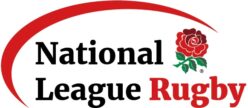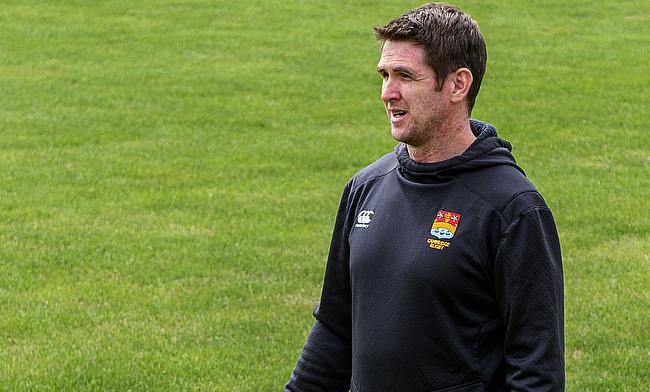Coaches Corner: Richie Williams
Current Cambridge Director of Rugby, Richie Williams, is writing a series of columns on the ncarugby.com website to give readers an insight into what life is like as a coach in the game. Photo Credit: (Chris Fell)
In his final post for ncarugby.com, Richie discusses his move to Cambridge, a nail-biting first season and what is to come at Volac Park.
A soon as I joined Cambridge RUFC in my early role as head coach, I quickly realised the relentlessness of National One rugby. To my knowledge, there aren’t many other leagues in the world that would play 30 league games each season, at such an exhausting pace. Traditionally, pre- Christmas is fully loaded with 13 consecutive league games before a mandatory break for the festivities.
Fortunately, the NCA and RFU are currently looking at reducing the league to 14 teams at the beginning of the 2021-22 season. A four-game reduction is vital for player welfare, and this can be seen as a positive amendment.
Every year, the quality of the league is enhanced. There is a cross section of ex-professional players on their way down and a raft of exciting young players with professional aspirations. In the middle lies the blood line of each club; those players that have come through the club’s junior section and who are the ‘cultural architects.’
One of my principle objectives at Cambridge was to develop the on- field leadership capabilities. This is an organic process. There have, however, been massive strides in this area over the past 18 months. Our model aims to develop a number of leaders that support and scaffold the captain and help shape the direction of the team. We are very fortunate that we now have a spine of leaders at the club including 1st XV captain George Bretag-Norris, Ben Penfold, Rob Conquest, Matt Hema and a number of other players.
It has been well documented of late, that a number of National League clubs are investing more in their player development models. Now, there is greater importance placed on the mini and junior sections of each club and added significance in aligning the playing pathway.
Read about former Cambridge M&Y @will_hooley here https://t.co/g0NOTuIOHC
— Cambridge RUFC (@camrufc) September 21, 2018
We at Cambridge have an excellent track record in supporting player development, with players like Will Hooley, Fraser Dingwall and Alex Goode, all representing the club.
For us, we want to try and enhance the overall experience for everyone involved at the club. We are fortunate to be situated in a beautiful part of the UK which affords us the opportunities to recruit high quality players to the area. We are currently in the process of announcing some partnerships with a number of businesses and education providers who will be able to support our retention and recruitment policies.
The introduction of our first ever Rugby Academy began last year and we see this program as a catalyst to ensure future success on and off the field.
It hasn’t always been plain sailing. I have some particularly painful memories of my first season in charge at the club where we had to overcome many challenges. The atmosphere and culture weren’t what they should be in any organisation. A large proportion of that first season was spent trying to improve the environment and align it with the club’s vision. This meant some very difficult decisions around modifying the balance of the squad.
In all honesty, these changes were necessary, and we had to say farewell to a number of high-quality players and coaches. There was a clear need to develop better systems on and off the field to give everyone clarity and a sense of purpose. There needed to be better connections between players and coaches and vice versa. Encouragingly, through the support of the committee and wider club, we are starting to see a number of these benefits.
It could, however, have been a lot different. That first season made me realise how lonely coaching as a profession could be. I referenced this in my first column when I lived and coached in Belgium. It is a highly pressurised environment and this is amplified when results go against you.
On reflection, I learned some harsh lessons around management and leadership. Once again, I also learned how important it is to have a strong support network around you. As a leader, I am very open minded and welcome the opportunity for other professionals to visit our environment and offer feedback. This helps with the growth of any team.
Whilst we played some excellent rugby at times, beating top teams like Blackheath and Ampthill, we struggled with any sort of consistency. We weren’t scoring enough bonus points despite having one of the best defensive records in the league. With a month left of the season, we found ourselves in a relegation scrap with Caldy and Birmingham Moseley.
Both Loughborough and Esher were already relegated before the last league weekend, meaning one of Caldy, Moseley or ourselves would be playing the 2019-20 season in National Two.
Our assignment was a simple one; we had to travel to Sale FC and pick up maximum points to survive. We also had to rely on Moseley beating Caldy. We probably had our best week of preparation leading into the Sale FC game.
We brought in forwards coach Dan Richmond (ex-coach at Sale Sharks) who was able to work really closely with our forward pack and support the coaching team. There was complete focus in our game plan, and I was really confident that we would hold our part of the bargain and pick up five points.
To settle everyone’s nerves, we scored two early tries through brothers Mike and Jimmy Ayrton. We then scored another two tries late on in the game to secure the BP win. Our game had kicked off slightly later than the Moseley v Caldy game and people frantically refreshed their Twitter feeds for regular updates.
With five minutes left in that game, it seemed the writing was on the wall as Caldy were leading. Then, deep into injury time, back row forward Jacques Le Roux scored the winning try for Moseley. To this day, I would still like to buy him a few beers for helping us survive.
The relief at the end of the day was palpable. Everyone was physically and emotionally exhausted. Immediately after the game, we all made a promise that we would never put ourselves in this position again.
With a much stronger environment in place, the 2019/20 season was far more successful on and off the field. Experiences from the previous campaign had made the playing group more resilient in its approach and this was endorsed with wins away at places like Cinderford and Old Elthamians. We went on a seven-game winning streak and before the season was cut short, we had already accumulated our highest number of league points since returning to National One.
The playing group is now far more dynamic and there is a real clarity around our purpose and direction. The leadership model that is in now in place, makes us a far more sustainable team.
My role has now changed to Director of Rugby which I am really enjoying. I will continue with the on- field support of the 1st XV, but now widen my whole club engagement. It is a very exciting role as the club has great potential. We have a number of strong foundations in place and have some outstanding individuals at the club. We need to continue to raise the profile of the club to make it an even more attractive place for players and commercial parties.
There is a great opportunity to augment our already strong mini and junior section and invest even more energy in our colts and academy programs. We want to align all three of our senior teams and cater for players of different needs.
Looking ahead to this season, whenever it may be, we have recruited wisely, but placed a big emphasis on having cohesion in our squad. We want to continue to improve our consistency and also continue to grow our identity and status as a club.
With the landscape of sport constantly evolving, it places even more significance on developing a contemporary and forward-thinking environment. To summarise, I strongly endorse the notion that coaching is a relationship business. With any relationship there is a need to develop layers of trust, which naturally takes time. We are well on the way to reconnecting with the wider club and are all excited about the future.

